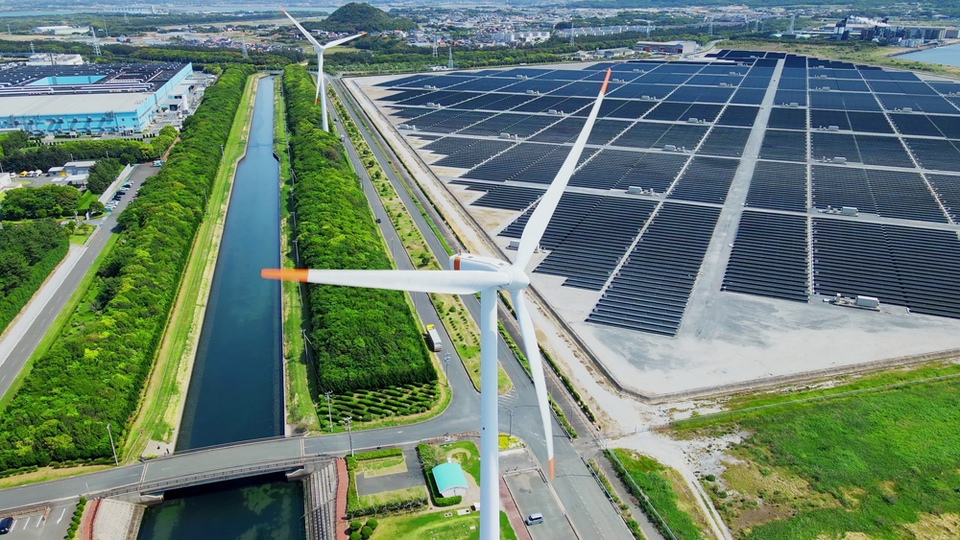Why does impact investing attract sophisticated investors?
Impact investing aims to generate positive social, environmental and economic impacts alongside strong financial returns. This approach helps to align capital allocation with moral values, ultimately working to generate profit with purpose.
Whilst creating positive impacts is arguably the most prominent benefit of impact investing for sophisticated investors, a whole host of factors have made the approach more attractive to this group in particular as of late.
Most notably in recent years, investing for impact has demonstrated resilience and strong financial performance, with more than 88% of impact investors reporting that their investments met or exceeded their expectations according to the Global Impact Investing Network in 2020.
Furthermore, research conducted by Campden Wealth, Global Impact Solutions Today (GIST) and Barclays Private Bank highlights the growing interest in impact investing from high-net-worth individuals (HNWIs) globally. A survey of over 300 respondents from 41 countries, with an average net worth of $876 million, revealed that, on average, HNWIs and family offices plan to increase their allocation to impact investments, from approximately 20% of total portfolio in 2019 up to 35% by 2025.
The growing collective shift in mindset, from striving purely for financial returns, to addressing wider social, environmental and economic objectives, has proven an important driver of the demand for impact investment opportunities. As stated by Barclays’ head of Sustainable and Impact Investing, Damian Payiatakis, ‘families are considering the impact of their capital and then increasingly taking action, by allocating more towards solving our urgent global societal and environmental issues’.
To fully appreciate this rising demand, understanding the growth of impact investing, some of its most sought-after benefits, how it differs from similar investing styles, and its strong links with the alternative investment space can be crucial in understanding why this route can be so attractive to sophisticated investors in the modern day.
The growth of impact investing
Impact investing has grown steadily over the past decade. In 2010, the Global Impact Investing Network’s (GIIN) annual survey reached only 50 responses, 75% of whom thought the market was in its infancy and who expected to invest an aggregate $4 billion the following year.
Fast forward to 2020, the GIIN report benefitted from feedback from almost 300 investors, 69% of whom regarded the market as growing steadily and who expected to invest $48 billion overall in 2021. At this time, the total market size was estimated to sit at around $715 billion.
As of now, following a 2021 in which the UK alone saw a record £2 billion of venture capital investment into ‘impact startups’, and in a post-pandemic period in which the value of innovative, mission-driven startups has never been better highlighted, economists suggest this trend shows no sign of slowing down.
What are the benefits of impact investing?
Whilst the most notable features of impact investing relate to facilitating positive environmental, social and economic change, a range of other advantages are associated with this approach, further emphasising why sophisticated investors are drawn to impact investing.
1. Aligning capital allocation with moral values
Impact investing enables sophisticated investors to back projects and companies which display potential to generate measurable positive impacts, possibly for the environment, society, regional economies, or a combination of these areas.
As a result, experienced investors looking to target more than just superior investment returns can make their capital go further in pursuit of a more positive long term personal mission.
Ultimately, impact investing can help bring a sense of purpose to investors’ capital allocation, contributing to improving the living standards of individuals and communities today, as well as of future generations.
2. Supporting companies with scope to achieve positive impacts and high growth
Identifying and supporting the game-changing, innovative companies who have the ability to deliver positive impacts is another benefit of impact investing, often identified by the more experienced investor as a key draw.
These businesses can be rare, meaning that financial backing from investors, sometimes along with expertise and advice, is crucial to ensure the businesses can grow and the desired positive changes can be executed.
Ultimately, backing genuine, growth-focused, impact-driven startups can enable these businesses to be better placed to spread their values and impacts across a wider scale.
3. Combining positive impact with strong, sustained financial returns
Whilst financial returns are certainly not the sole objective of impact investing, they do play a significant role in the sustainability of this approach.
The balance of facilitating positive change with generating superior, sustainable financial returns is what makes impact investing so effective, especially for sophisticated investors. If larger investment sums are allocated, the level of support for positive causes could increase, as well as providing scope for potentially higher returns.
This can result in a virtuous cycle of investing to generate both positive impacts and positive returns, enabling investors to continue allocating the capital earned to further support social and environmental projects.
4. Potential to benefit from generous tax-efficient investment schemes
Many impact investments fulfil the eligibility criteria to benefit from tax-efficient wrappers. This means that government-introduced initiatives, such as the Enterprise Investment Scheme (EIS) and Seed Enterprise Investment Scheme (SEIS), can help sophisticated investors to minimise risk whilst maximising returns of their impact investing ventures.
With the most notable tax benefits available via these schemes consisting of up to 50% income tax relief on qualifying investments, capital gains tax exemption and capital gains reinvestment relief, alongside the ability to pass on shares inheritance tax free, experienced investors can derive significant additional benefits as a result of impact investing.
This extra value gained in the form of tax relief could subsequently be utilised to further contribute to ethical, sustainable projects and to support game-changing businesses.
5. Can help to construct a well-diversified portfolio
Impact investing can act as a highly effective route to achieving portfolio diversification. This is because many impact investments fall into the asset classes of venture capital, private equity and property, for example, which (due to being categorised under the alternative investment umbrella) are largely uncorrelated to traditional market movements and can subsequently offer scope for diversification.
Having a well-diversified portfolio can help to minimise risk by spreading exposure across multiple asset classes, industries, geographies and levels of company maturity. This is of particular importance to sophisticated investors during the period of stagflation currently facing the UK, where inflation-beating returns are desirable, but defensive assets can be equally useful.
Read More: How to develop a portfolio diversification strategy
Diversification can help to strike an effective balance between superior returns and ‘safe-haven’ investments. This combination could assist in withstanding the pressure of high inflation and sluggish GDP growth and is becoming increasingly attainable with the rise of impact investment opportunities.
How does impact investing compare with other types of ethical investment?
Many strategies exist for allocating capital to positive social and environmental causes, each displaying slightly different characteristics and each bearing varying levels of suitability to sophisticated investors.
So, what are the real differences between the wider category of impact investing and other, more niche, responsible investing approaches?
Impact Investing vs Socially Responsible Investing
Investors avoiding opportunities that conflict with their own ethical beliefs is known as socially responsible investing (SRI), whereas impact investing is often more focused on actively seeking out investment opportunities with the potential to deliver measurable positive impacts.
In comparison to impact investing, SRI is generally more exclusionary in nature, meaning that some specific investments are restricted if they are not compatible with a defined set of principles or ethical guidelines.
The SRI approach tends to focus on a more basic ‘do no harm’ philosophy, without typically taking the step of seeking out organisations and projects that proactively attempt to contribute positively to society. Therefore, impact investing may be more suited to experienced investors aiming to facilitate targeted, measurable positive impacts, rather than simply avoiding unethical opportunities.
Impact Investing vs ESG Investing
Investors hoping to instigate positive change via their asset allocation may also consider environmental, social and corporate governance (ESG) investing. Following this approach, investors look to score investments based on company actions regarding the environment and society, as well as how the company is managed internally.
ESG investing tends to focus more on avoiding poorly scoring investments in the three outlined categories, as judged by ESG ratings agencies. On the other hand, impact investing generally seeks to support companies and projects that display potential to positively transform industries and communities.
Similar to SRI, ESG investing may be viewed as more exclusionary, as opportunities that score highly in the environmental category but low in terms of social impact, for example, may be disregarded. Conversely, impact investing as a whole could be perceived as more open to varying degrees of impact within each category, whilst still placing ultimate importance on delivering positive change alongside favourable financial returns.
For sophisticated investors aiming to objectively evaluate investment opportunities in terms of environmental, social and corporate governance metrics, ESG investing could be useful. SRI may be more suited to investors just beginning to consider the space of impact investing, starting out by avoiding opportunities that don’t align with personal or ethical values.
Overall, impact investing is the wider category that these two specific approaches fall within, but investing for impact generally displays a more proactive focus on generating targeted positive social, environmental and economic impacts, as opposed to simply avoiding harmful opportunities.
Investing for impact in alternative asset classes
One effective route to impact investing is to explore the realm of alternative assets. The alternatives space is a broad classification that includes all investments other than stocks, bonds and cash.
Whilst the title of this investment space may evoke connotations of subordination, this area of investment actually includes a wide range of well-established opportunities, from property investing to private equity.
Generating positive social, environmental and economic impacts can arise naturally with many alternative investments. For instance, venture capital into EIS-eligible, early-stage companies that are carrying out significant research, development or innovation at the time of issuing shares (known as knowledge-intensive companies, or KICs) can unlock wider scope to benefit from the EIS opportunity. This includes permitting £2 million of annual investment (double the limit for non-KICs) into firms that employ up to 500 staff members (twice the maximum number of staff allowed for non-KICs to remain EIS-eligible).
These additional advantages of investing into an impact-driven KIC via the EIS can provide the potentially transformational startup with a larger stream of funding, and can present the investor with a higher degree of security - a factor that many experienced investors identify as valuable in early-stage investments.
Furthermore, targeted regional impacts can be achieved by alternative investments fuelling job creation and the subsequent improvement of local living standards. For example, private equity investment into the modular housing manufacturer, CoreHaus, has enabled the firm to reach the forefront of cost-effective, eco-friendly construction, provide employment for many local tradespeople, and help address the growing demand for affordable, sustainable UK housing solutions.
Alongside seeking to address the UK housing crisis by facilitating investment into game-changing businesses, private equity and property investments are also highly sought-after, and are equally capable of generating superior returns for sophisticated investors and HNWIs.
Discover More: Current Investment Opportunities
A final note
Overall, investing for impact can provide the opportunity to positively transform communities, industries, and potentially entire economies. This means that sophisticated investors can not only benefit from strong, sustained investment returns, but also from the knowledge that their capital allocation is facilitating wider positive changes for both current and future generations.
Whilst this can encourage a sense of personal achievement, the real merit lies in the actions and results that combine together to fulfil the unique demands of the twenty-first century. And if the growing popularity and accessibility of the impact investing market continues to provide a wide scope for experienced investors to capitalise financially and derive positive impact from, there is little doubt that this demand will show any sign of slowing down.
%20(3)%20(2).jpg)








